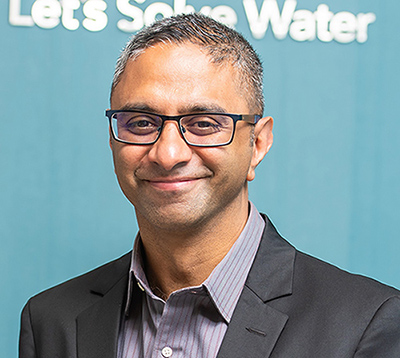Water Sustainability has become good business – how do companies get it right?
WHEN a drought forced the Tennessee Valley Authority to reduce its hydropower generation, it lost in the region of $300 million. And when a Coca-Cola plant in India started to compete with local farmers for water resources, it eventually shut down.
The most important detail from both these examples is that they occurred over 15 years ago, and there have since been more examples of how competition for water is a growing risk for businesses.
Yet the picture is not entirely gloomy, says Chetan Mistry, strategy and marketing manager at Xylem Africa.
“The silver lining of water stress is that we’ve been generally passive at it and leaving a lot of opportunities on the table. The growing problems with water is not a reckoning but instead a call to start doing more. And since water has not received the same level of diligence and planning as other resources, companies can get results much faster with minimal interventions.”
Use cases of water stewardship
Water management is becoming a cornerstone consideration for healthy ESG strategies, and more investors and market analysts look for a positive water attitude in companies. Numerous companies are living up to these ideals, making interventions that also align with their growth strategies.
3M, the global manufacturing conglomerate, set a goal to reduce its water use by a quarter and return clean water to the environment. It relies on water purification systems to reduce its pollution footprint and recycles water to improve resilience.
The vehicle giant Ford has been on a mission to reduce its water consumption. An average car requires almost 150 000 litres of water to manufacture—by reducing that demand by 70%, Ford has saved more than 41 billion litres of water through its water-management plans.
High-tech firms are also very water conscious: Meta, the owner of Facebook, WhatsApp, and Instagram, uses thousands of litres to cool its data centres. The company adopted a policy to return more water than it uses by 2030 and has already shrunk the water usage at some of its data centres by more than 70%.
UK municipalities are investing in water recycling schemes to battle water scarcity. China is bullish on developing eco-friendly wastewater sites in rural areas that maintain hygiene standards while keeping the surrounding environment clean.
And water technology leader Xylem has reduced its water use by 26% since 2019.
“If you consider how many parts of your business needs water, it’s not something you’d leave to chance. Saving water is very attainable once you commit to a working strategy, based on water management and aligned with your resilience and growth plans,” says Mistry.
“It’s not a sacrifice to manage water. It’s an investment that boosts efficiency, cost management, and sustainability.”
Water scarcity is arguably the most significant emerging risk to businesses and communities. Fortunately, numerous water conservation and management tactics can reverse the tide. At the very least, they help prepare us for when water becomes even scarcer.
“This is not new territory—we’ve worked with many public and private organisations across the world to develop water systems that recycle, revive and make their operations more resilient. Water sustainability has become good business—and it’s easier to get right than ever before.
